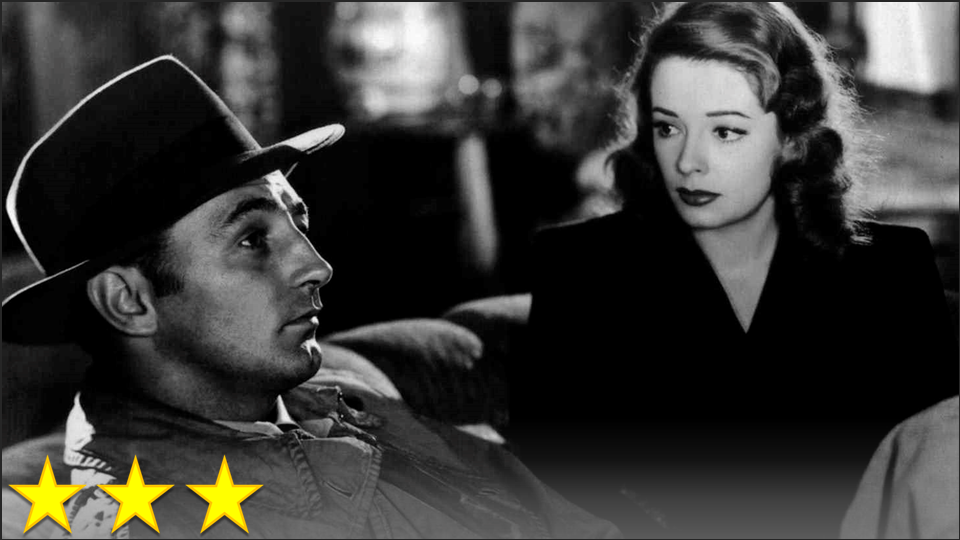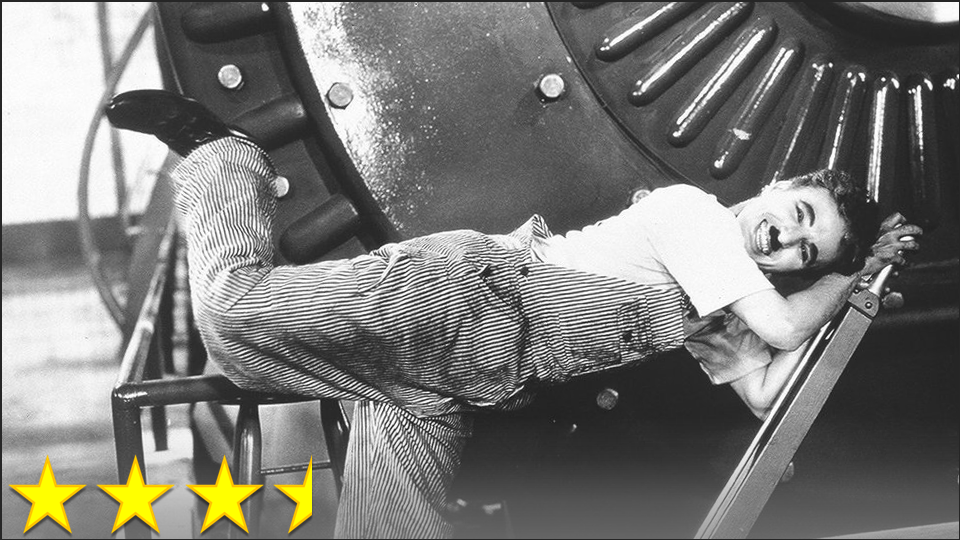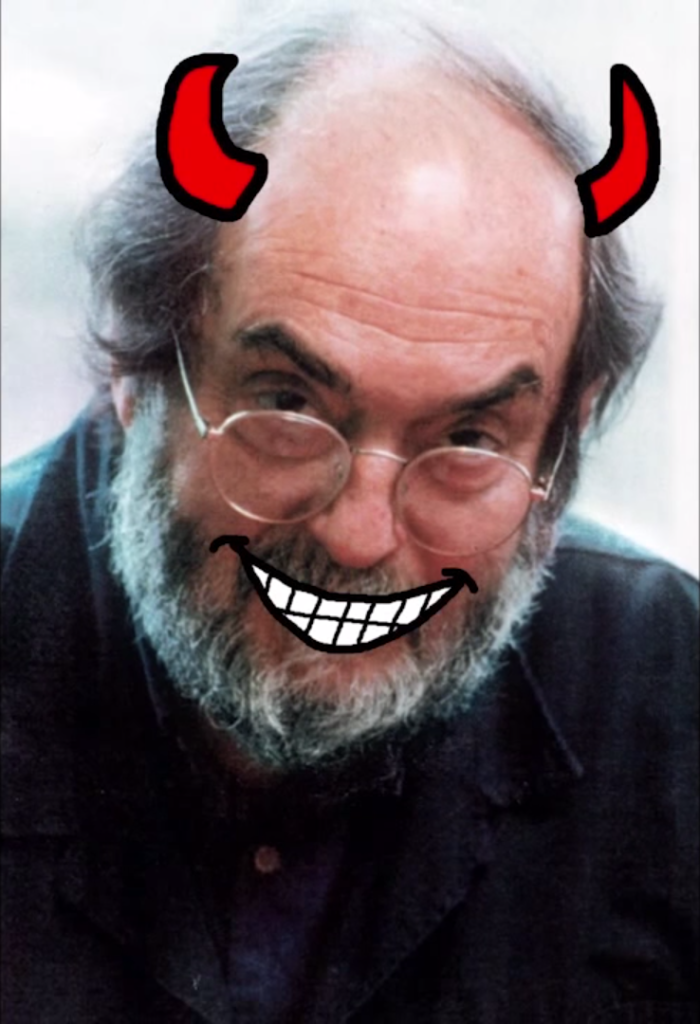In contrast to the western, film noir is more like my cup of tea. I’ll take the visual style of noir over the visual style of the western any day of the week. It’s so dark, smokey, dramatic, theatrical, and mysterious. How could a saloon girl compare to a deadly, spunky femme fatale? How could a singing cowboy compare to an eerie saxophone? Film noir has a special charm about it that I appreciate, but I haven’t actually watched many films in the genre (if any) all the way through, until I finally saw Jacques Tourneur’s Out of the Past. This picture is a good example of what film noir has to offer to the history of cinema, but what it presents is both the good and bad aspects of the genre.
This is, in its own way, a very interesting movie. It still strikes me as “tederesting” more than captivating, but it is very easy to get lost in the world of the film. The structure is surprisingly pleasant, because the first act or two is/are done almost entirely within a flashback. The plot does take surprising twists and turns, and it handles the twists and turns well . . . for the most part. Eventually, as can happen with noir, the plot becomes unintelligible. It gets too difficult to tell who’s who and why each of them is doing what he/she is doing. As it turns out, the characters are also unsure of what’s going on, and they are surprisingly struggling to know why they are doing what they are doing.
I wish to elaborate on the subject of motivation, because it is an important subject in art and philosophy that I have yet to address in a movie review, and this is the ideal motion picture for beginning this discussion. In fiction, deterministic fatalism is generally treated as a pleasant view of life – the good side is predestined to beat the bad side, and the chosen one simply must save the day because the prophecy says so. While I am not a fatalist, I am a determinist, which is to say that I stand by the evidence that our thoughts and actions are determined by subconscious brain activity we cannot control, which leaves us without freedom of will (in that we are not the source of our own intentions and desires). That being said, I would obviously much rather live in a world in which we do have free will, and the fact that this cannot be is troubling. This movie exemplifies how the genre of film noir uses this troubling predicament to make good drama.
Kathie is the femme fatale with a lot of bad habits, from shooting people without sufficient reason to being a compulsive liar. When challenged for her actions, she persistently claims that she didn’t want to do what she did – she had to, and she couldn’t explain why. In my film history class, the professor explained why. Noir is fascinating because it shows the consequences of living in a world with not only determinism, but fatalism, in that the characters have certain actions that they must commit regardless of their intentions, and they have no control over whether these actions will be good or bad. This is, when pondered, a rather terrifying concept, which brings all the fiction that celebrates “destiny” under serious scrutiny. As annoying as it was to repeatedly hear Kathie’s rejection of responsibility for her actions, this did make me realize that there is a certain kind of conflict that I want to see far more of in cinema: the struggle for freedom in a world that cannot have free will. This subject may very well be the most captivating concept that any work of art could discuss, at least in my opinion, and I wouldn’t have even thought of it if not for Out of the Past.
Overall, this movie is fine. It’s true that I couldn’t fully appreciate the characters, and it’s true that I found the ending a little unsatisfactory. I found it rather slow at many times, particularly in the last act, and I could not keep track of the chaotic plot-line (which was more of a plot-scribble) if I were well paid to do so. However, it does provide a bit of entertainment, and can even be surprisingly thought-provoking, so I give it a pass.






